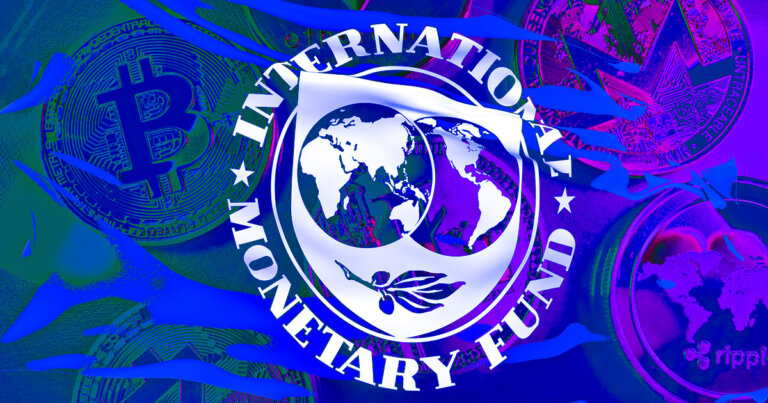 IMF paper proposes risk assessment framework for integrating crypto into financial system
IMF paper proposes risk assessment framework for integrating crypto into financial system IMF paper proposes risk assessment framework for integrating crypto into financial system
As market interest in crypto continues to grow, global monetary authorities are working on how to integrate the new technologies into legacy systems with minimal chaos.

Cover art/illustration via CryptoSlate. Image includes combined content which may include AI-generated content.
The rapid growth of the crypto asset industry in recent years has sparked heightened concerns about potential risks to financial stability, according to a new working paper released by the International Monetary Fund (IMF).
The IMF research follows multiple failures in the crypto space, including the collapse of TerraUSD and FTX, which have led to calls to strengthen regulatory frameworks related to crypto assets. Moreover, the authors style the crypto industry as a rapidly growing “shadow financial system,” noting that while crypto assets offer benefits like more efficient payments, their integration into the broader economy still poses financial stability risks that existing policy frameworks do not yet have adequate tools to assess.
It is important to observe that the paper is the work of an internal working group, and that it does not represent formal IMF policy. The ideas are intended to elicit feedback as policymakers worldwide grapple with oversight of decentralized digital markets.
Assessment tools
Among the proposals outlined is introducing a Crypto-Risk Assessment Matrix that would summarize each country’s crypto-related vulnerabilities, track key indicators, identify potential triggers of instability, and match risks to tailored policy responses. The paper also suggests incorporating crypto factors into existing systemic risk monitoring conducted by the IMF and others.
Given cross-border spillovers, the working group stressed the need for enhanced international cooperation on crypto regulation. This could involve information sharing arrangements between national supervisors. Addressing data gaps through reporting rules is seen as another priority.
Since risks may concentrate in certain actors like stablecoin issuers, the paper advocates expanding macroprudential tools to focus on crypto-specific risks. This includes requirements like capital buffers, liquidity rules, and designating some institutions as systemically important. Specialized oversight bodies, adapted models, and novel policy responses like for cyber risks were other recommendations put forward.
According to the paper, crypto assets resemble risky asset classes in their propensity for mispricing and shock transmission. However, their distinctive features like automation and decentralization introduce new complexities for regulation. Crypto assets may weaken monetary policy transmission, enable volatile cross-border capital flows, and suffer from data gaps.
To address these challenges, the paper proposes expanding macroprudential policy tools to cover crypto-specific risks. It calls for international cooperation to overcome data limitations hindering effective oversight. The paper argues crypto assets should be incorporated into assessments of systemic risk, tailored to each country’s vulnerabilities.
Global integration
Ongoing research within institutions central to the legacy financial system—such as the IMF and Federal Reserve—indicates that policymakers and financial authorities worldwide are actively assessing how to integrate crypto assets into the broader global financial system. While risks exist, the efforts underway to understand this nascent industry and expand regulatory frameworks demonstrate an openness to the nascent technology. “Notwithstanding its benefits,” the IMF paper concedes, “financial innovation has traditionally been a key force of financial instability.”
That said, both the IMF and the Federal Reserve are tasked with maintaining financial and economic stability, which each will undoubtedly always place at the forefront of their considerations. However, with crypto adoption accelerating, regulators face the complex task of balancing innovation against stability as market demand for crypto products gradually, but surely, takes hold .



















































